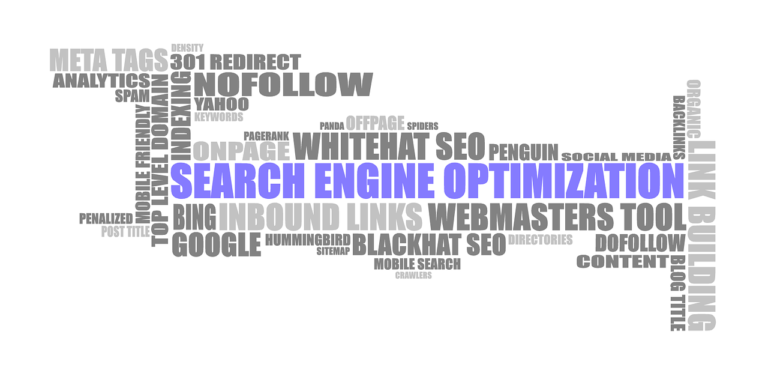What Is Link Relevancy?
Link relevancy is a crucial concept in the world of digital marketing. It refers to how closely related a link is to the content on the webpage it is placed on. Essentially, link relevancy determines the impact and effectiveness of a link in driving traffic and improving search engine rankings. By understanding the importance of link relevancy, you can make informed decisions when it comes to building and optimizing your website’s link profile. Let’s delve into this fascinating topic and uncover its significance in the realm of online marketing.

Learn moreabout how to build links for your business..
Definition of Link Relevancy
Understanding the concept of link relevancy
Link relevancy refers to the degree of relationship between the content of two web pages that are linked to each other. In simpler terms, it is the measure of how closely related the linked pages are in terms of their subject matter or topic. When two pages are connected by a hyperlink, search engines like Google analyze the relevancy of the link to determine the usefulness and quality of the content. Link relevancy plays a vital role in search engine optimization (SEO) as it helps search engines understand the context and authority of the linked content.
Importance of link relevancy in SEO
Link relevancy is a critical component of SEO because it affects how search engines perceive and rank the linked pages. When a page receives links from other relevant and authoritative sources, search engines consider it to be a sign of quality and reliability. Link relevancy helps search engines understand the topic and context of a page, allowing for better indexing and ranking in search results. By maintaining link relevancy, website owners can improve their website’s visibility, organic traffic, and overall online presence.
Factors Affecting Link Relevancy
Topical relevance
Topical relevance refers to the alignment of the linked pages in terms of their subject matter or topic. When two pages share similar or related content, the link between them is considered topically relevant. For example, if a blog post about healthy recipes links to a website selling organic ingredients, it demonstrates topical relevance. Search engines analyze the content of the linked pages and evaluate their relevance to determine the overall link relevancy.
Anchor text relevance
The anchor text is the visible text in a hyperlink. It serves as a signal to both users and search engines about the content of the linked page. Anchor text relevance refers to the connection between the words used in the anchor text and the topic of the linked page. If the anchor text accurately describes the content of the linked page, it contributes to the link’s overall relevancy. It is important to use descriptive and relevant anchor text to provide context and improve link relevancy.
Contextual relevance
Contextual relevance considers the surrounding content of the linked pages. It involves analyzing the content within which the link is placed to determine its relevancy. For example, if a blog post discussing the benefits of yoga includes a link to a reputable yoga studio, it adds contextual relevance to the link. Search engines analyze the broader context of the linked pages to assess their relevancy and determine their overall value.
Evaluating Link Relevancy
Link relevancy metrics
Various metrics are used to evaluate the relevancy of a link. One commonly used metric is the relevance of the linking domain or website. If the linking website has content or a topic similar to the linked page, it adds to the overall relevancy. Another metric is the number of other relevant links on the linking page. If a linked page is surrounded by other reputable and topically relevant links, it strengthens its own link relevancy. Moreover, the anchor text used in the link, as well as the overall quality and authority of the linking page, contribute to the evaluation of link relevancy.
Manual evaluation of link relevancy
In addition to automated metrics, manual evaluation is also essential in determining link relevancy. SEO professionals review the content of the linked pages, assess the overall topical relevance, and analyze the context in which the link is placed. Manual evaluation helps ensure that the links are genuinely relevant and add value to the user experience. While automated metrics provide a useful starting point, human judgment is often necessary to make nuanced decisions regarding link relevancy.
Importance of Link Relevancy in SEO
Improved search engine rankings
Link relevancy is crucial for improving search engine rankings. When a page has relevant and high-quality links pointing to it, search engines consider it to be a valuable resource. The relevancy of these links signals to search engines that the content is authoritative and should be ranked higher in search results. By building a strong network of relevant links, websites can increase their visibility and attract more organic traffic from search engines.
Increased organic traffic
Link relevancy directly impacts organic traffic. When a page has links from topically relevant sources, it increases the likelihood of attracting visitors who are genuinely interested in the content. Relevant links act as a recommendation, guiding users to explore additional information on related topics. As the number of relevant links increases, so does the potential for organic traffic growth. By emphasizing link relevancy, website owners can attract targeted traffic and increase the chances of conversions or engagements.
Enhanced user experience
Link relevancy plays a crucial role in enhancing the user experience. When users encounter links that are contextually relevant and lead to high-quality content, they are more likely to trust the information provided. Irrelevant or misleading links can frustrate users and negatively impact their perception of a website’s credibility. By prioritizing link relevancy, website owners can ensure that users have a seamless and satisfying browsing experience, leading to increased user engagement and improved user satisfaction.

How to Achieve Link Relevancy
Planning link building strategies
To achieve link relevancy, it is essential to have a well-planned link building strategy. Start by identifying websites or sources that have content related to your own. Reach out to these websites and share valuable resources or content that they may find relevant and worth linking to. Building relationships with other industry professionals or influencers can also open doors for relevant link opportunities. By focusing on strategic link building, website owners can attract links that are highly relevant to their content and target audience.
Creating high-quality content
One of the most effective ways to achieve link relevancy is by creating high-quality content. By producing valuable, informative, and engaging content, website owners can naturally attract relevant links. When content is well-researched, standout, and offers unique insights or perspectives, it becomes a magnet for other websites looking to reference or link to authoritative sources. By consistently delivering exceptional content, website owners can establish themselves as thought leaders and attract relevant links from reputable sources.
Relevant guest blogging opportunities
Guest blogging provides an excellent opportunity to obtain relevant links. By contributing guest posts to websites that are in the same industry or cover similar topics, website owners can acquire high-quality links that are directly related to their content. Guest blogging allows for the creation of contextual and topically relevant links within the body of the content. By identifying reputable websites that accept guest contributions and offering valuable content, website owners can secure relevant links while simultaneously building their authority and online presence.
Avoiding Link Irrelevancy
Identifying and removing irrelevant links
To avoid link irrelevancy, it is crucial to regularly monitor and evaluate the links pointing to your website. Identify any links that are unrelated to your content or come from low-quality sources. Reach out to the website owners and request the removal of irrelevant links. If removal is not possible, consider utilizing the disavow tool in Google Search Console to signal to search engines that you disassociate your website from those irrelevant links. Regularly auditing and maintaining the relevance of your links can help improve your link profile and overall SEO performance.
Using proper anchor text
Using proper anchor text is essential to ensure link relevancy. Anchor text should accurately describe the content of the linked page and provide context to the user. Avoid using generic anchor text like “click here” or “read more” as it does not provide any relevancy signals to search engines. Instead, use descriptive keywords or phrases that accurately represent the content of the linked page. By using specific and relevant anchor text, website owners can improve the link’s relevancy and provide valuable information to both search engines and users.
Checking link sources for credibility
When building links, it is crucial to ensure that the sources are credible and authoritative. Be cautious of link schemes or websites that promise to provide numerous links quickly. These spammy and low-quality links can harm your website’s SEO and relevance. Instead, focus on acquiring links from reputable websites that have established authority and credibility within your industry. By vetting the sources and ensuring they align with your content and audience, you can maintain link relevancy and safeguard your website’s SEO performance.
Link Relevancy vs. Link Authority
Understanding the difference
While link relevancy and link authority are both important factors in SEO, they differ in their emphasis. Link relevancy primarily focuses on the relationship between the linked pages and how closely they align in terms of their subject matter or topic. It is about ensuring the content and context of the link are relevant to both search engines and users. On the other hand, link authority considers the reputation and trustworthiness of the linking domain or website. It looks at factors such as domain authority, page rank, and the number and quality of links pointing to the linking site.
Importance of balancing both factors
Balancing both link relevancy and link authority is crucial for successful SEO. While relevancy helps search engines understand the context and subject matter, authority provides a measure of credibility and trustworthiness. Striking the right balance between the two factors is important for optimizing SEO performance. Aim to acquire links from relevant and authoritative sources to ensure that your website is seen as both trustworthy and relevant. By combining link relevance with link authority, website owners can maximize the impact of their link building efforts and enhance their overall SEO strategy.
Common Mistakes in Link Relevancy
Overlooking link relevancy
One common mistake in link building is overlooking link relevancy. Some website owners may focus solely on acquiring as many links as possible without considering their relevance to the content. While quantity is important, the quality and relevance of the links matter significantly. Irrelevant links can be seen as spammy or manipulative by search engines, which can negatively impact a website’s SEO performance. It is essential to prioritize link relevancy and ensure that the acquired links add value to the content and enhance the user experience.
Excessive focus on link quantity over quality
Another mistake is placing too much emphasis on link quantity over quality. While it may be tempting to accumulate a large number of links, it is more important to focus on acquiring high-quality and relevant links. Search engines consider the authority and trustworthiness of the linking sources, and a few quality links from reputable websites can have a more significant impact than numerous low-quality or irrelevant links. Prioritize the quality and relevance of the acquired links to effectively boost your website’s SEO performance and organic visibility.
Link Relevancy Best Practices
Conducting regular link audits
Regular link audits are crucial for maintaining link relevancy. Conducting audits allows you to identify any irrelevant or low-quality links that may be harming your website’s SEO performance. You can use tools like Google Search Console, Ahrefs, or Moz to analyze your link profile and identify any problematic links. Once identified, take appropriate action to remove or disavow these irrelevant links. By conducting regular link audits, you can ensure that your link profile remains relevant, trustworthy, and aligned with your overall SEO strategy.
Building diverse and natural link profiles
Building a diverse and natural link profile is essential for achieving link relevancy. Aim to acquire links from a variety of sources, including different domains, websites, and industries. A diverse link portfolio indicates to search engines that your content is valuable and relevant to a broader audience. Additionally, focus on acquiring links organically by producing high-quality content that naturally attracts links. By building a diverse and natural link profile, website owners can enhance their link relevancy and strengthen their overall SEO performance.
Monitoring and adapting to algorithm updates
Search engine algorithms are constantly evolving, and it is important to monitor and adapt to these changes. Stay updated with algorithm updates and changes to search engine ranking factors. When search engines like Google introduce updates, they often aim to improve the relevance and quality of search results. By staying informed and modifying your link building strategies based on algorithmic changes, you can ensure that your links remain relevant and aligned with search engine requirements. Regularly monitor industry news and adapt your link building practices to maintain link relevancy.
Conclusion
Link relevancy is a crucial aspect of SEO that influences search engine rankings, organic traffic, and overall user experience. By understanding and implementing link relevancy best practices, website owners can improve their online visibility, attract targeted organic traffic, and enhance their SEO performance. By focusing on planning strategic link building strategies, creating high-quality content, and nurturing guest blogging opportunities, website owners can maximize the impact of link relevancy on their website’s success. Additionally, avoiding link irrelevancy, understanding the difference between link relevancy and link authority, and rectifying common mistakes can further improve the effectiveness of link building efforts. With a comprehensive and strategic approach to link relevancy, website owners can enhance their overall SEO strategy and achieve long-term success in the digital landscape.






